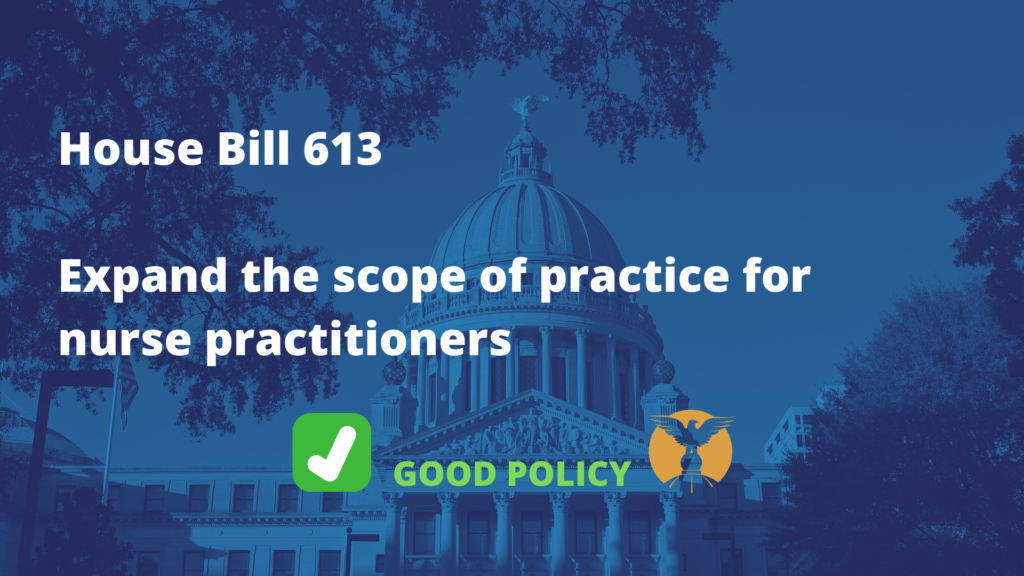
Currently, nurse practitioners are required to practice in a collaboration with a physician. This would exempt them from this requirement after working for 3,600 hours.
Mississippi limits the ability of nurse practitioners to practice up to their full training — what is called “full practice authority.” In particular, nurse practitioners who wish to open their own practice, or a free-standing clinic, must enter into a collaborative agreement with a physician. This agreement requires the supervising physician to be within a 75-mile radius of the nurse’s practice location. The supervising physician is then required to randomly review up to 20 of the nurse practitioner’s patient charts and meet with the nurse practitioner once every quarter. The typical charge for this minimal (not real time) standard of review is $74 a day or $2,250 a month.
Numerous studies demonstrate that nurse practitioners provide care that is at least as good as physicians, with some studies showing even better outcomes. In part, this may be because nurse practitioners are both less expensive and more accessible, especially for rural and low-income patients. Other evidence suggests that nurse practitioners tend to follow recommended guidelines more frequently and, also, spend more time with patients — practices associated with better patient outcomes.
That is why 24 states and the District of Columbia extend full practice authority to nurse practitioners, which means nurse practitioners can independently evaluate and treat patients.
Just as Certificate of Need laws are being used to protect hospital monopolies, professional licensing and scope-of-practice regulations are being used to protect individual provider monopolies.
MCPP has reviewed this legislation and finds that it is aligned with our principles and therefore should be supported.
Read HB 613.
Track the status of this and all bills in our legislative tracker.